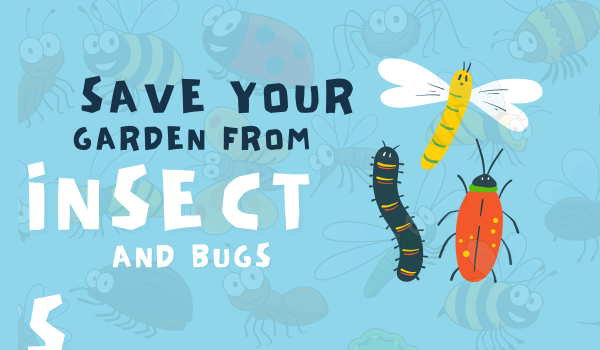The arrival of summer has knocked on the door. Which results in weather changes, fluctuations in water levels, temperature variations, and humidity are causing a continuous increase in infestations among flowering plants in the garden. This surge in insects adversely affects the normal growth of plants, resulting in fewer flowers, wilting of plant leaves, yellowing of leaves, and premature drying. By regularly monitoring and taking care of the garden, plants can be protected from insect infections during the summers, ensuring their healthy growth and development.
Save Plants From These Harmful Insects
Identifying Insects beforehand is crucial for effective insect management in gardens. Here are some common insects that are a trouble for the planters.
Aphids
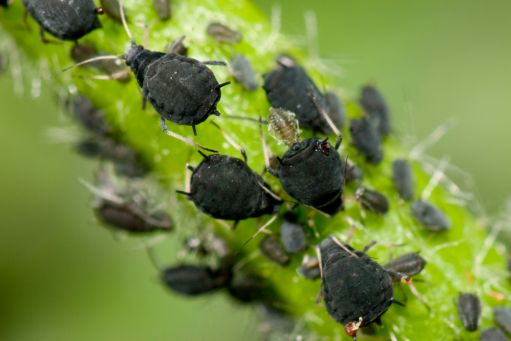
Aphids are tiny insects with delicate bodies that feed on the sap of flowers, stunting the growth of plants and causing irregularities in leaf shapes. By recognising these insects early on, gardeners can take timely measures to prevent their spread and minimise plant damage
Leaf Miner
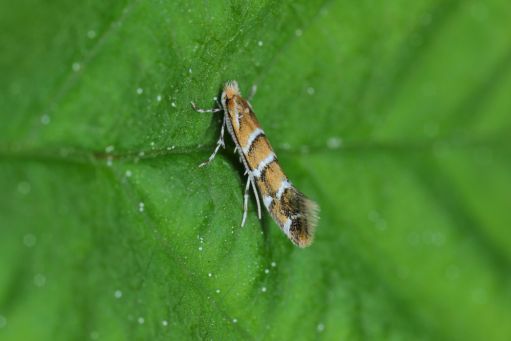
Leaf miner infestations pose a significant threat to plant health as their larvae tunnel through the leaves, creating irregular, serpentine-shaped trails on both sides of the foliage. These trails not only compromise the aesthetic appeal of the plants but also disrupt their photosynthesis process, leading to reduced growth and productivity.
Caterpillars
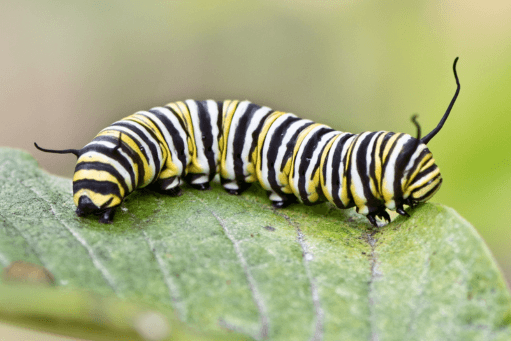
Caterpillars pose a significant threat to flowering plants, being among the most destructive insects. The larvae of caterpillars voraciously consume the leaves and flowers of plants, causing extensive damage and weakening the overall health of the plant. Their rapid feeding can result in defoliation, leading to reduced photosynthesis and stunted growth.
Mealybugs
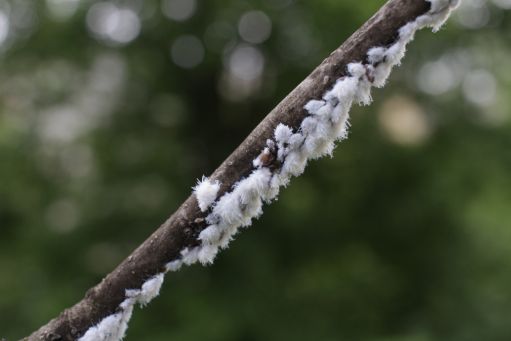
Mealybugs are troublesome insects known for feeding on the sap of flowering plants, which impedes the growth and development of the plants. They extract sap from the stems of plants, causing stunted growth and inhibiting flower production. Infested plants often exhibit symptoms such as yellowing leaves and increased susceptibility to diseases. Saving plants from mealybug is important as its infestations can spread quickly and may lead to significant damage if left unchecked.
Thrips
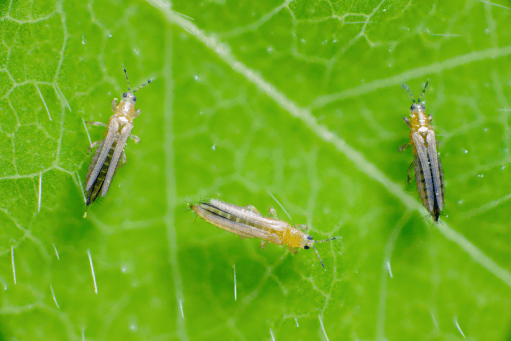
Thrips are notorious insects that inflict significant damage to flowers, particularly by feeding on their blooms and leaves. Their feeding behaviour involves sucking the sap from flowers and leaves, leading to irregularities in flower shape and size. Additionally, thrips may cause discolouration, browning, or silvering of affected plant parts, further detracting from the aesthetic appeal of the plant. Moreover, thrips can transmit viral diseases among plants, exacerbating the damage and compromising the overall health of flowering plants.
Ways to Protect Plants From These Harmful Insects
-
Healthy Plants Is The Key
When purchasing plants from a nursery, carefully inspect them to ensure they are free from insects. Insects often hide beneath the lower surface of leaves. If any signs of infestation are noticed, avoid planting such specimens in the garden.
-
Regular Maintenance:
Keep a close eye on your plants for any signs of damage or distress. Look for holes in leaves, changes in plant structure, and consistent moisture or wilting, as these are indicative of Insect infestation.
-
Avoid Over-Fertilisation
Excessive use of fertilizers and nutrients can lead to lush leaves, which in turn attract more insects. It is important to apply fertilizers and nutrients to plants in balanced quantities to prevent an overabundance of growth and minimise the risk of insect damage.
-
Remove Weeds
Unwanted weeds in the garden compete with flowering plants for nutrients and attract insects. Regularly removing weeds helps maintain the health and vigour of the garden. Weeds not only hinder the growth of healthy plants but also serve as breeding grounds for insects and diseases. Therefore, it is essential to keep the garden free from weeds by regularly weeding and cultivating the soil to prevent weed growth
Protect Plants Through These Solutions
If you have tick marked all the above written ways and still insects are troubling the plants then try these solutions;
- To protect plants from insects, spray a mixture of 3.0 millilitres of neem oil, 1 teaspoon of baking soda, 20 millilitres of vinegar, and 5 millilitres of cow urine diluted in a litre of water at intervals of 15 to 20 days. This natural solution acts as a deterrent to insects while promoting plant health.
- For insect control, mix one part turmeric powder with ten parts water and spray it on the infected leaves of the plants. This solution helps in combating various insects effectively while being safe for the plants and the environment.
- To control leaf miner insects, mix 4 millilitres of neem oil in a litre of water and spray it on the leaves. This natural remedy is effective in repelling leaf-miner insects and promoting the overall health of the plants.
Conclusion
Insects are somehow trouble-givers for the plants at the time of their growth. You can control or stop these problematic insects by applying the above-discussed ways into daily practice. Hope you have learned new things after reading this blog. Keep reading and take care of nature around us.
